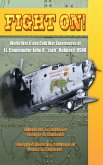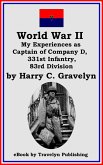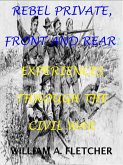World War I was a uniquely devastating total war that surpassed all previous conflicts for its destruction. But what was the reality like on the ground, for both the soldiers on the front-lines and the women on the homefront?Drawing on intimate firsthand accounts in diaries and letters, War Experiences in Rural Germany examines this question in detail and challenges some strongly held assumptions about the Great War. The author makes the controversial case for the blurring of 'front' and 'homefront'. He shows that through the constant exchange of letters and frequent furloughs, rural soldiers maintained a high degree of contact with their home lives. In addition, the author provides a more nuanced interpretation of the alleged brutalizing effect of the war experience, suggesting that it was by far not as complete as has been previously understood. This pathbreaking book paints a vivid picture of the dynamics of total war on rural communities, from the calling up of troops to the reintegration of veterans into society.
Bitte wählen Sie Ihr Anliegen aus.
Rechnungen
Retourenschein anfordern
Bestellstatus
Storno









